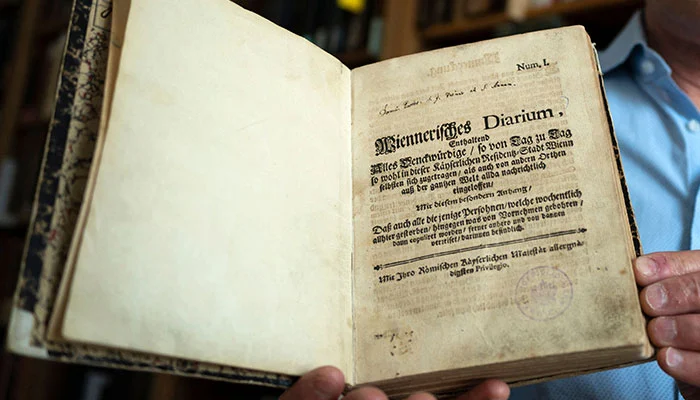Wiener Zeitung, one of the world’s oldest newspapers still in print, will primarily move online after a long-standing dispute between the newspaper and the Austrian government. The country’s parliament made the decision on Thursday, adopting a new law that will take effect from July 1.
Established in 1703 as Wiennerisches Diarium and later renamed Wiener Zeitung in 1780, the bi-weekly publication was nationalized by Emperor Franz Joseph I of Austria in 1857 and became the country’s official gazette.
The newspaper’s role as the official gazette, which is also its main source of revenue, will move to a different state-owned online medium. The government claims that this move is in line with a European declaration to consolidate and disseminate official information online. The new law will allow the paper to maintain a minimum of ten print publications per year, depending on the funds available.
Wiener Zeitung has been in a dispute with the Austrian government for several years, with the government wanting to modernize the newspaper and move it primarily online. Meanwhile, the newspaper has been resisting the change, arguing that it would compromise its journalistic integrity and quality.
The Wiener Zeitung will also launch a media hub, a content agency, and a training center for correspondents. However, the newspaper’s trade union has warned that almost half of its more than 200 employees, including 40 journalists, could be laid off as a result of the move.
Mathias Ziegler, the vice managing editor of the newspaper, expressed concerns that the government wants to keep the Wiener Zeitung brand with its 320-year-old history, but nobody knows what the future publication will look like or whether it will still uphold serious journalism.
Wiener Zeitung has a circulation of about 20,000 on weekdays and about twice as much on weekends, making it one of the smallest newspapers in the country. It was ranked as one of the oldest newspapers still in circulation in 2004 by the World Association of News Publishers.
The government’s move has sparked protests in Vienna, with several hundred people taking to the streets on Tuesday to voice their opposition. EU Commission Vice-President Vera Jourova has also expressed her dissatisfaction with the situation, saying that she believes “the Wiener Zeitung played a good role in informing people over the years.”
The move is seen as part of a broader trend in the media industry, as traditional newspapers struggle to maintain their relevance and profitability in the digital age. While many have already made the transition to online-only or hybrid models, others, like Wiener Zeitung, are resisting the change, highlighting the challenges of balancing tradition with innovation.




